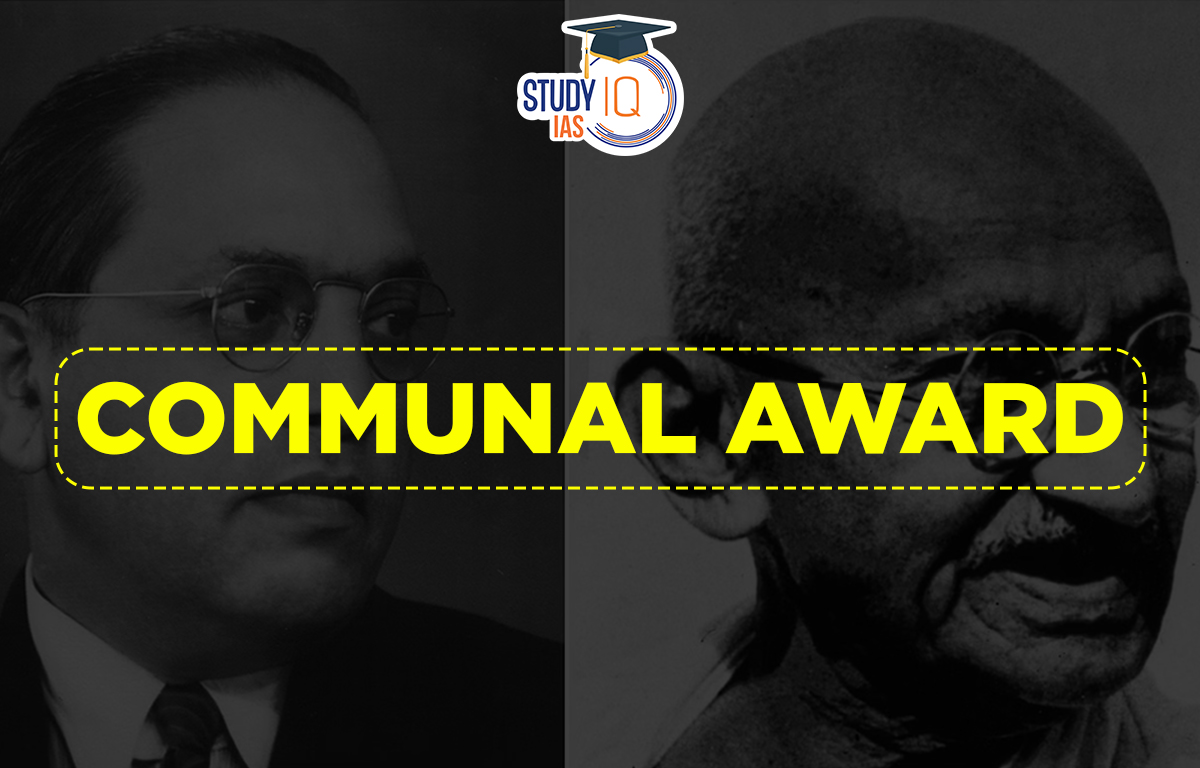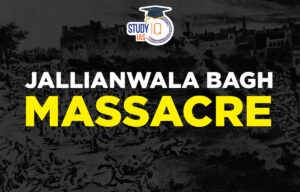Table of Contents
Communal Award
On August 16, 1932, British Prime Minister Ramsay MacDonald unveiled the Communal Award. It was designed to create distinct electorates in British India for the Forward Caste, Lower Caste, Muslims, Buddhists, Sikhs, Indian Christians, Anglo-Indians, Europeans, and Untouchables based on the recommendations of the Indian Franchise Committee (also known as the Lothian Committee) (now known as the Dalits). The “McDonald Prize” is another name for it. This article will cover the Communal Award (August 16, 1922) and be useful for preparing for the UPSC exam.
Read about: List of Bharat Ratna Awards
Communal Award History
The British strategy of “Divide and Rule” was given new expression with the announcement of the Communal Award in August 1932. Each minority was given a specific number of legislative seats under the Award, which were chosen by distinct electorates. Muslims, Sikhs, and other groups would only be able to pick other Muslims, for example. Muslims, Sikhs, and Christians had previously been ignored.
The Award successfully separated the Depressed Classes (today’s Scheduled Castes) from the rest of the Hindu community by declaring them a minority community with their own electorate. Because it supported the communal notion that Muslims, Sikhs, and Christians formed different groups or communities with unique interests from the rest of India, the Congress opposed a separate electorate for them.
As a consequence, there was division among Indians, which hindered the emergence of a shared national consciousness. On the other hand, as part of a compromise with the Muslim League as early as 1916, Congress had consented to a distinct electorate for Muslims. Mass gatherings were conducted almost everywhere in India, and political figures of all stripes—including Madam Mohan Malviya, B.R. Ambedkar, and M.C. Raja—became active.
Read about: Dadasaheb Phalke Award 2022
Communal Award Main Provisions
- Provincial legislatures would have twice as many members.
- The concept of distinct minority electorates was to continue.
- Muslims were a minority; they were to be accorded weight.
- All provinces, with the exception of the NWFP, were required to designate 3% of seats for women.
- Dalits, untouchables, and despondent people were to be designated as minorities.
- The distribution of labour, landowners, merchants, and industrialists was required.
- As a consequence of this victory, Marathas, Sikhs, Indian Christians, Anglo Indians, Muslims, and Europeans all have their own electorates..
- Seats that could only be filled by election from the depressed classes’ special constituencies were granted to them. However, they were also qualified to cast a ballot in general elections.
- Special electorates for labour, business and industry, mining and plantations, and landowners were also created.
- Sikhs made up 13.2% of the people in Punjab. Of the 175 available places, 32 were given to them.
Read about: Gallantry Awards
Communal Award Objective
The Communal Award gave the Depressed Classes voting rights in addition to Hindus for a 20-year period, as well as an additional vote in 71 special Depressed Classes constituencies. The announcement of the Communal Award was seen as a strong sign that the divide between caste Hindus and the Depressed Classes was widening and posed a major threat to the Indian nationalist movement.
Read about: Physiography of India
Communal Award Significance
Following are the communal constituencies that were established by the Award: general (consisting of Hindus and other residual communal groups), Muslim, Sikh, Indian Christian, Anglo-Indian, European, Hindu depressed classes (with electors also voting in the general constituency), and tribal or backward areas. Not only were Muslims in India given the right to a distinct electorate, but also all other minority groups in the nation.
Due to the Award’s determination that the untouchables were a minority, the Hindu depressed classes (Dalit) were granted a number of special seats to be filled from special depressed class electorates in regions where their voters were concentrated. The Communal Award also upheld the concept of weight age, with some modifications made in provinces with a Muslim minority.
Europeans in Bengal and Assam, Sikhs in Punjab and the Northwest Frontier Province, and Hindus in Sind and the Northwest Frontier Province were all subject to the weight age concept. Muslims were only given 86 of the 175 seats in the Punjab Assembly, despite making up roughly 56% of the state’s total population. As a consequence, Punjab’s Muslim majority became a minority.
The Bengali Europeans and Punjabi Sikhs benefited the most from the recipe. To guarantee their representation in the provincial legislature, women were given special seats within the different communal categories. Additionally, the Award safeguarded a number of non-communal special constituencies, such as labour, business, landowners, and colleges.
Read about: Education Ministers of India List
Communal Award and Poona Pact
A turning point in India’s political and civil history was the Poona Pact. The possibility of a loud voice for the poor in public life was increased by the promise of many seats for the underprivileged.
Read about: Panchayati Raj
Communal Award Defects
The Communal award was founded on the British idea that castes, racial, religious, and cultural groups, as well as interests, make up India rather than a single country. The British had a single goal: to eradicate nationalism and inculcate a sense of provincial allegiance in smaller communities. The British created the idea of a separate electorate for this reason among others, as elections are a potent tool for distributing power. A policy of appeasement and quota regulation that is still steadily killing India was launched with this award.
Read about: Classical Dances of India
Communal Award UPSC
The British government withdrew the plan after acknowledging Gandhi’s assertion that the oppressed classes were an essential component of Hindus. After that, Gandhi met with the untouchables’ leader, Dr. B.R. Ambedkar, and they signed the Poona Pact, which increased the number of seats the oppressed classes got from the general Hindu quota compared to what they had received under the Communal Award of 1932. Learn everything there is to know about Communal Prizes for UPSC Exam Preparation.
Read about: Important Dams in India


 Indus River System, Tributaries, and Sin...
Indus River System, Tributaries, and Sin...
 Jallianwala Bagh Massacre, Date, History...
Jallianwala Bagh Massacre, Date, History...
 Important Lakes of India, State wise and...
Important Lakes of India, State wise and...





















